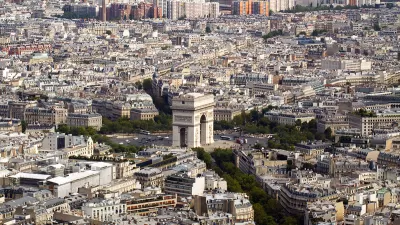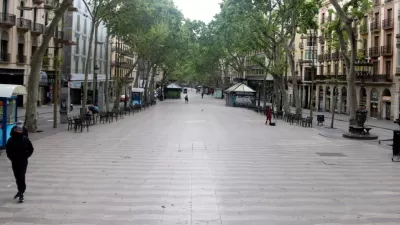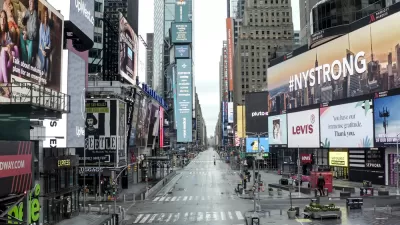Accelerated investment in smart city technologies presents increased opportunity for connection and data-driven decision making, so long as cities can avoid the common pitfalls of implementation.

In the opinion and experience of planning professionals and city authorities, the coronavirus pandemic is shifting cities' priorities toward digitalization and the adoption of smart city technologies. As Lara Williams puts it: "The pandemic has highlighted the need for accelerated digital city planning and greater communication with citizens for such population levels to be sustainable."
Cities like London and Vancouver are accelerating and repurposing in-progress projects to enable the collection of data that can inform data-driven decisions in response to the coronavirus crisis. According to Williams, cities are also investing in technologies to connect remote workers. In Vancouver, for example, with the implementation of LED street lighting systems and a shift to remote work infrastructure, the city predicts significant post-pandemic savings in the midst of an economic downturn.
Understanding the role of digitization in cities large and small is an increasingly ubiquitous priority for city authorities and infrastructure owners. Williams says, however, that cities should take test runs before implementing massive changes and that, "small pilots leading to scalable solutions with an organic approach are preferable to sweeping policy changes."
Another consideration for city authorities considering the implementation of new technologies: prioritize data privacy and digital citizenship as part of the process, making sure every member of the community has equal access to prerequisites for using the technology, including knowledge of how the systems function.
FULL STORY: How Covid-19 is shifting 'smart city' priorities

Alabama: Trump Terminates Settlements for Black Communities Harmed By Raw Sewage
Trump deemed the landmark civil rights agreement “illegal DEI and environmental justice policy.”

Planetizen Federal Action Tracker
A weekly monitor of how Trump’s orders and actions are impacting planners and planning in America.

The 120 Year Old Tiny Home Villages That Sheltered San Francisco’s Earthquake Refugees
More than a century ago, San Francisco mobilized to house thousands of residents displaced by the 1906 earthquake. Could their strategy offer a model for the present?

BLM To Rescind Public Lands Rule
The change will downgrade conservation, once again putting federal land at risk for mining and other extractive uses.

Indy Neighborhood Group Builds Temporary Multi-Use Path
Community members, aided in part by funding from the city, repurposed a vehicle lane to create a protected bike and pedestrian path for the summer season.

Congestion Pricing Drops Holland Tunnel Delays by 65 Percent
New York City’s contentious tolling program has yielded improved traffic and roughly $100 million in revenue for the MTA.
Urban Design for Planners 1: Software Tools
This six-course series explores essential urban design concepts using open source software and equips planners with the tools they need to participate fully in the urban design process.
Planning for Universal Design
Learn the tools for implementing Universal Design in planning regulations.
Clanton & Associates, Inc.
Jessamine County Fiscal Court
Institute for Housing and Urban Development Studies (IHS)
City of Grandview
Harvard GSD Executive Education
Toledo-Lucas County Plan Commissions
Salt Lake City
NYU Wagner Graduate School of Public Service





























